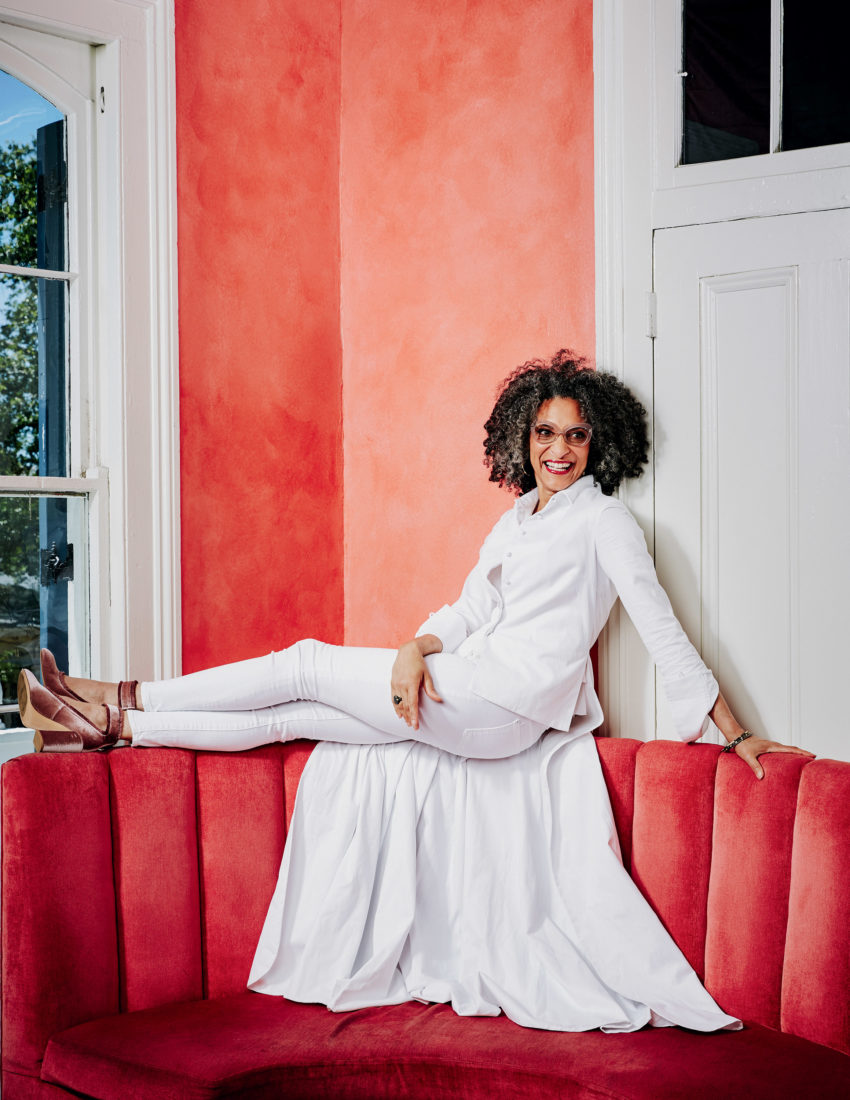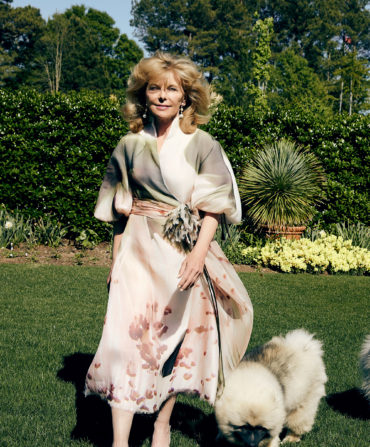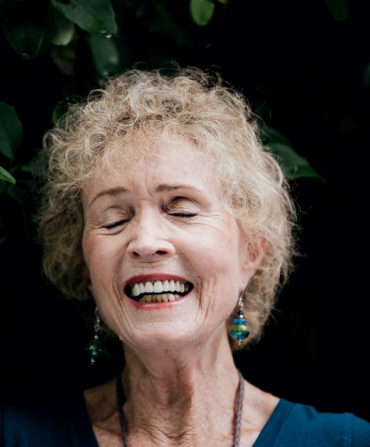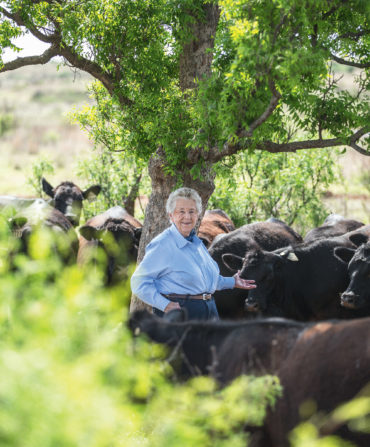Carla Hall may have spent the past seven years traveling from her home in Washington, D.C., to New York to cohost ABC’s food-centric talk show The Chew, but the chef is a serious Southern girl. A native of Nashville, Hall went to Howard University to become an accountant, a choice she soon saw was not for her. It wasn’t until she was modeling in Europe, having Sunday suppers with friends, that her passion for cooking was sparked. “The food made me think of home,” she says.
So Hall decided to begin catering, and attended culinary school before landing a spot on Top Chef, where she became a fan favorite. Now her third cookbook, Carla Hall’s Soul Food, which debuts in October, will bring Hall full circle, celebrating twists on the types of dishes she grew up eating in Nashville. And while there have been challenges along the way—a restaurant that didn’t make it, and the cancellation of The Chew after cohost Mario Batali faced sexual misconduct allegations—“I’m fine,” she says. “When one door closes, a window opens.”
What are your earliest food memories?
My grandmother on my mother’s side, Granny, was a hairdresser. We would always go to her house for Sunday suppers. My grandmother wouldn’t make the cornbread before she saw us on the inside of her door. Everything would be on the stove—she had been cooking slowly all day—but we couldn’t eat because we had to wait for the cornbread. Then it would come out golden brown. Crispy around the edges. Just a bit of butter. It was just so good.
And greens, too, right?
One summer she was like, Carla and Kim—Kim is my sister—I want you to go and pick the greens. And I’m like, I have to pick the greens? Ugh! At dinner I said, “Well, you all may be eating weeds, because I didn’t know the difference.” It didn’t dawn on me my grandmother would know the difference between collard greens and weeds, right? I just didn’t want her to ask me again.
More: Get the recipe for Carla Hall’s Callaloo Collard Greens
You went into accounting—when did you realize that wasn’t right for you?
I was always that quirky kid—I liked numbers. But when I was doing accounting, I was so stressed out. I was in Ocala, Florida, doing an audit. And one of the accountants was folding this receipt. It took him about a minute; he was just focusing on the corners. And I’m like, That can’t be me. It just can’t. I was so afraid of being forty and hating my job.
You were modeling a little then, so you decided to go to Paris to do runway.
I went by myself. Paris ended up being the bridge between what I knew I didn’t want to do and what I eventually wanted to do.
How so?
This woman named Elaine Evans would have Sunday suppers, all us models over. In the kitchen, they would be going back and forth, Well, my mother does it like this, and My mother does it like that. And I was like, I have no idea what my mother does, because all of those Sunday suppers at my grandmother’s house, I was outside. I was homesick. And it was wanting that connection to home that got me into cooking.
Then you returned to D.C., and began your catering business.
I walked door-to-door—to hair salons, doctors’ offices, florists—and I sold sandwiches. I worked every single day for five years. Then I went to culinary school at thirty, and worked in restaurants for a couple years. I like catering because you get to create a moment for somebody, and it’s all the food memories—you’re in it with them.
You acted as a teen in Nashville. How did that training pay off?
Theater saved me from being bullied, because I was a quirky kid and really shy. Because I did acting, I was always comfortable on television. They would call me “quirky Carla” [on Top Chef]. I think most people are quirky—they’re just afraid to show it.
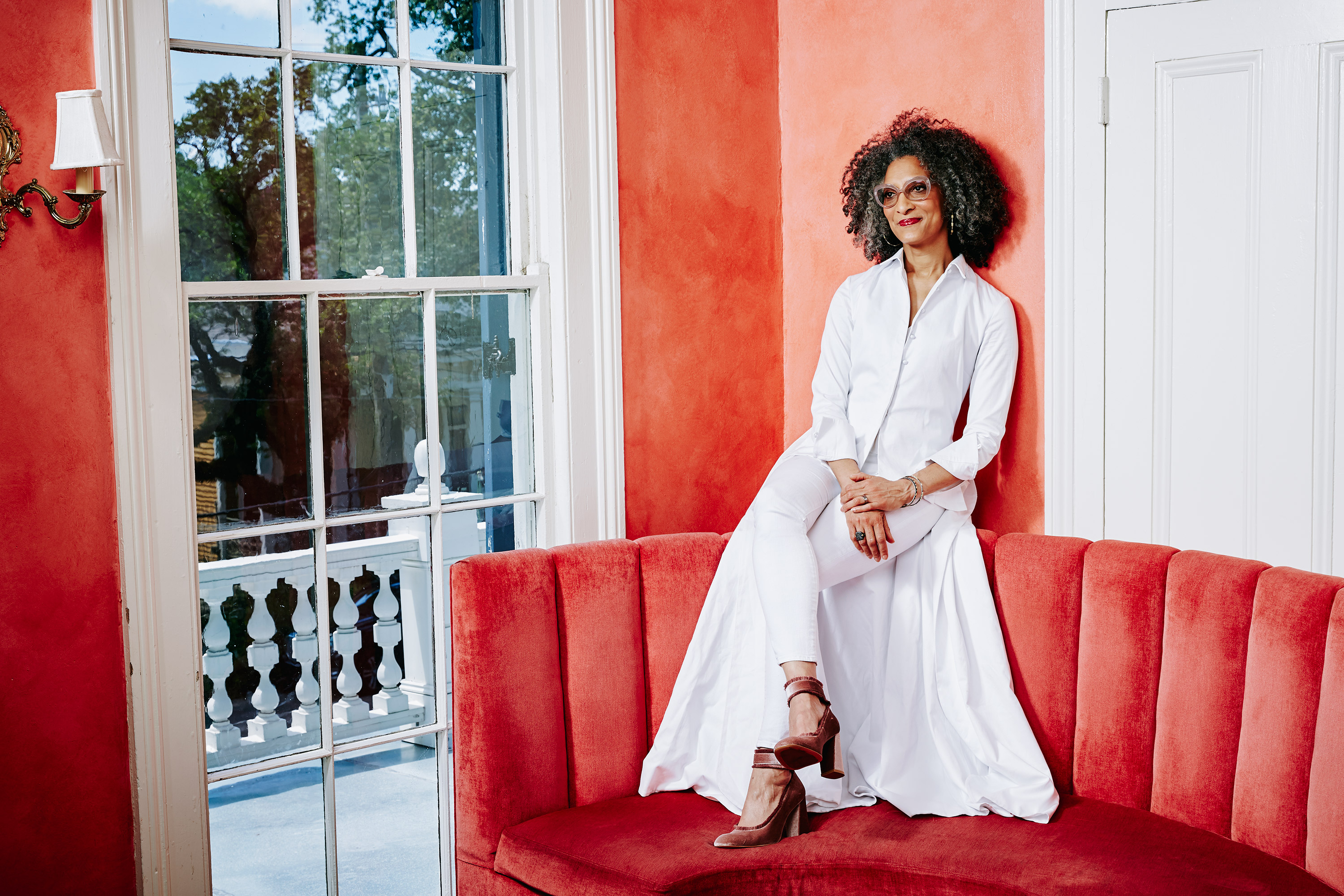
Daymon Gardner
Your public persona is always cheerful.
People think I’m like this all the time. I know who I am, and I’m doing the thing I want to do. That helps. But every time I meet somebody, I’m thinking, They’ve gotten to know me on television. And this is my opportunity to get to know them.
Your husband, Matthew, stayed in D.C. while you worked in New York. How did you navigate that?
When I got the offer to do The Chew—as a couple, if we weren’t going to survive, I wouldn’t have taken the job. But he was like, “It’s a wonderful opportunity. You should go and do it, and we’ll figure it out.”
One of the books my dad read to us was The Prophet [by Kahlil Gibran]. And it’s [that poetic essay about] those two trees—you have to be strong in your own roots, and let your leaves commingle. He allows me to do that, and I do the same for him.
How do you nurture chefs of color?
I say it to any person of color: Really honor your heritage through your food, because that’s your North Star. And when you connect with your North Star, people can’t help but be drawn in.
You’ve really embraced Southern food.
Why do authors use food in books? Because it’s a shortcut to understanding where the character’s coming from. To understanding who the person is and what they like and what they don’t like. I am a proud, card-carrying Southerner.
I bet you have a church hat somewhere.
As a matter of fact, I do have a church hat—it’s in my dressing room! It’s a little black beanie with a flower.
Read more from our August/September 2018 Southern Women issue


